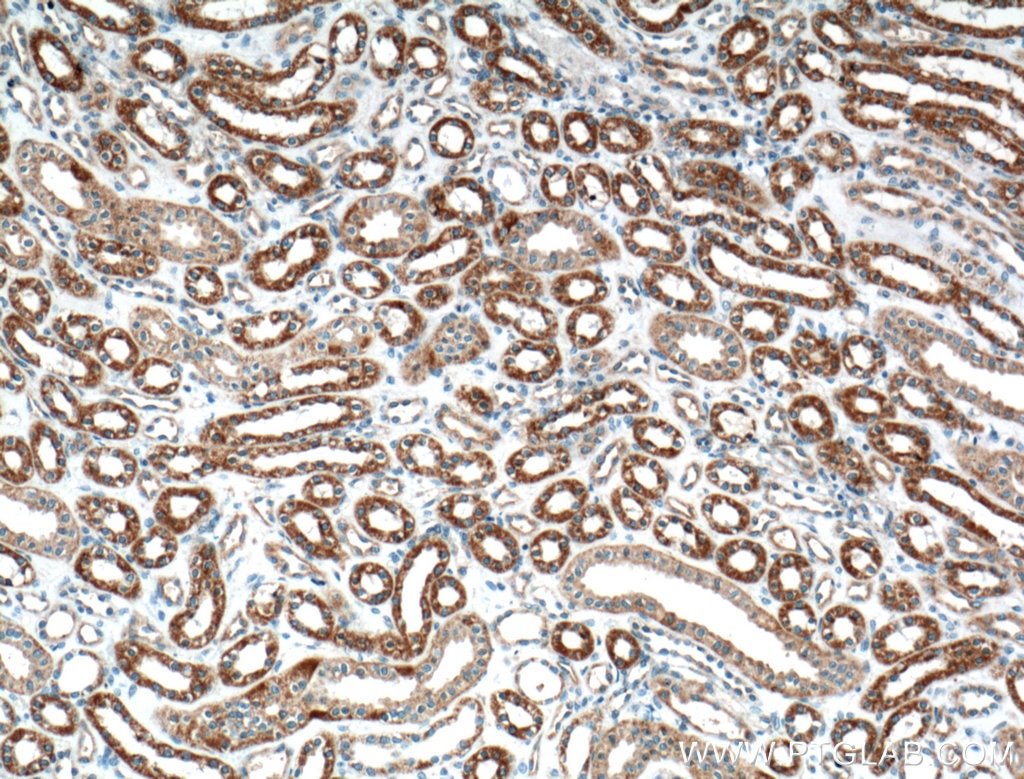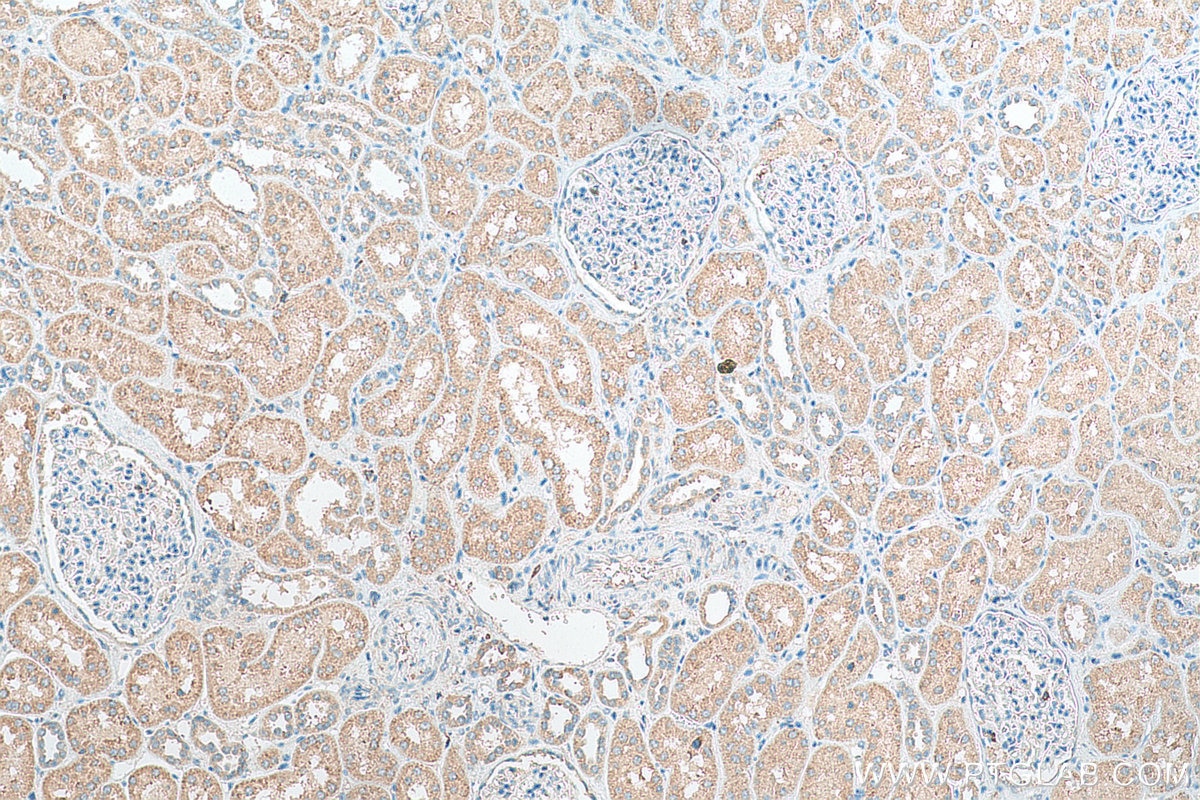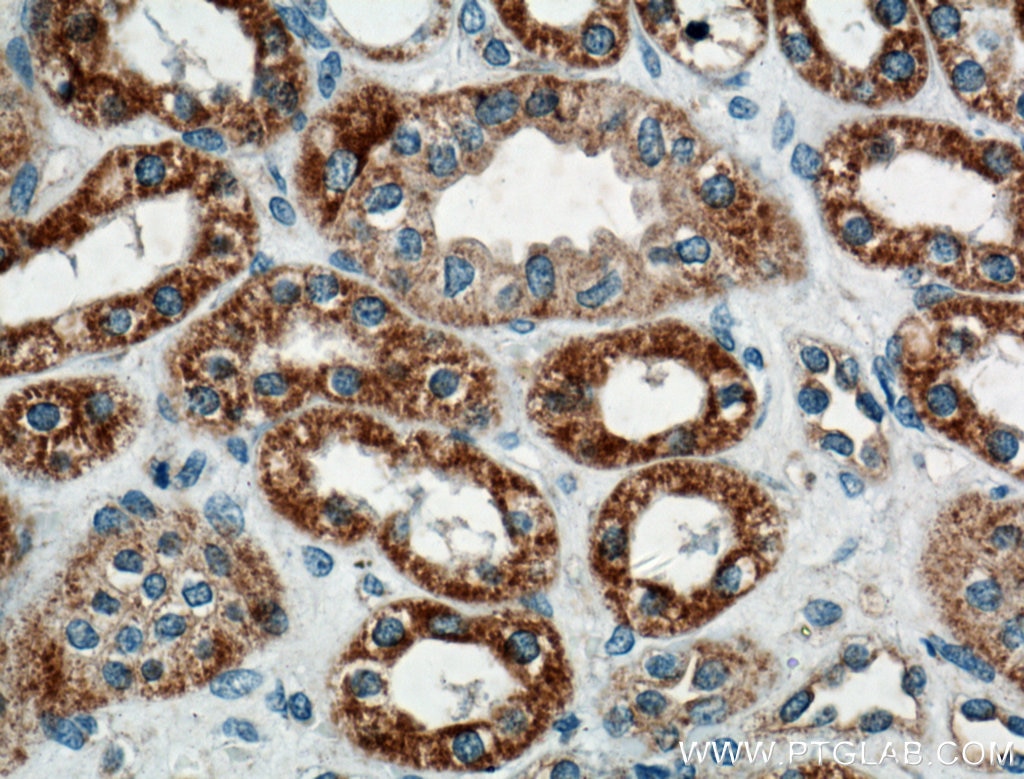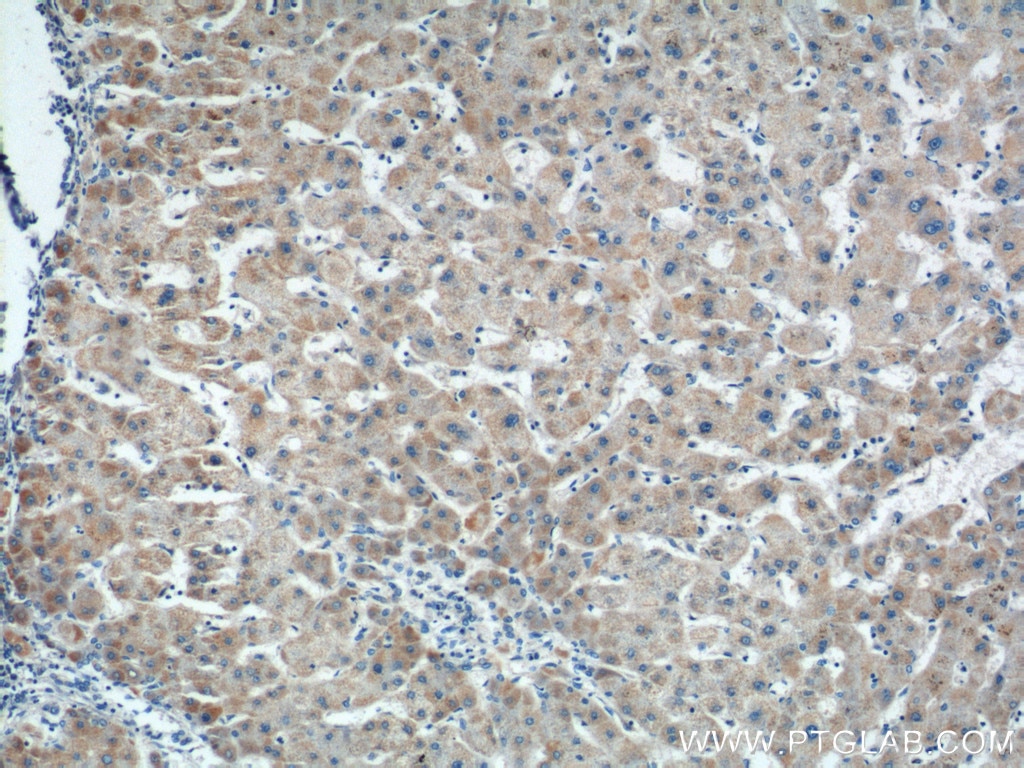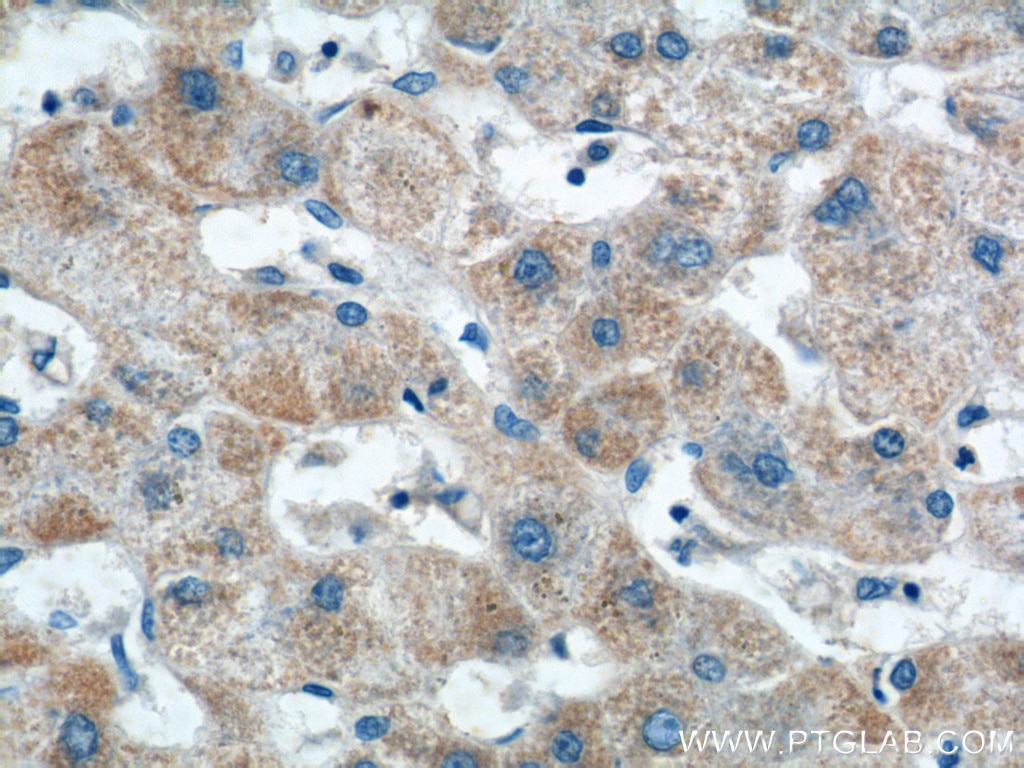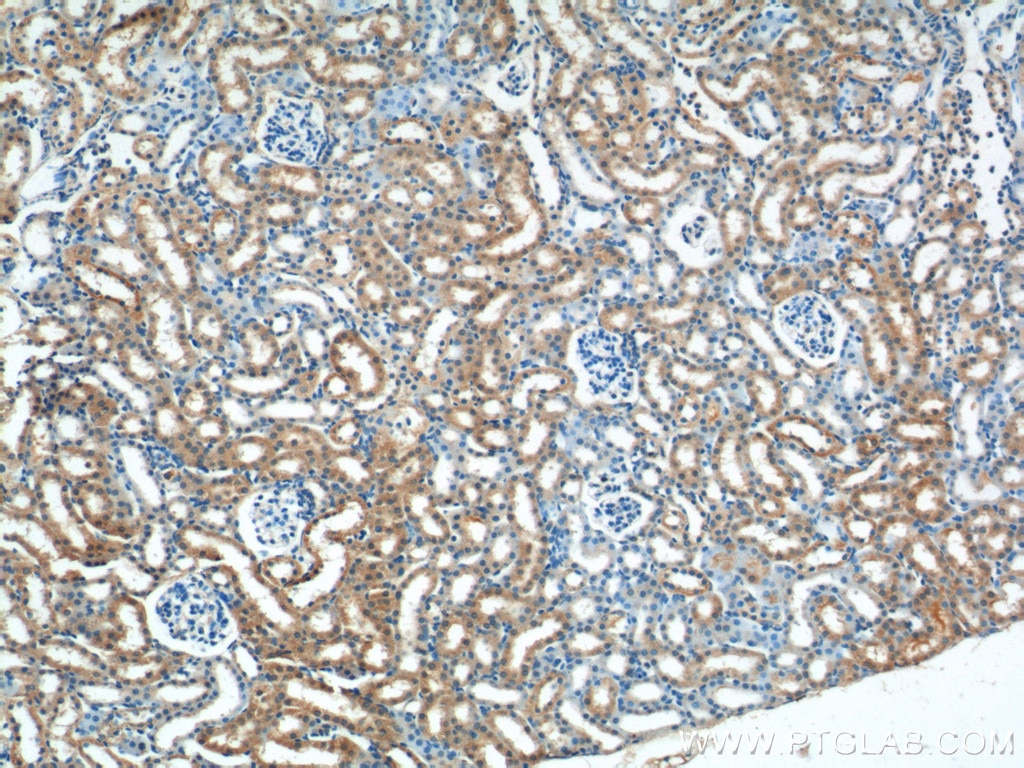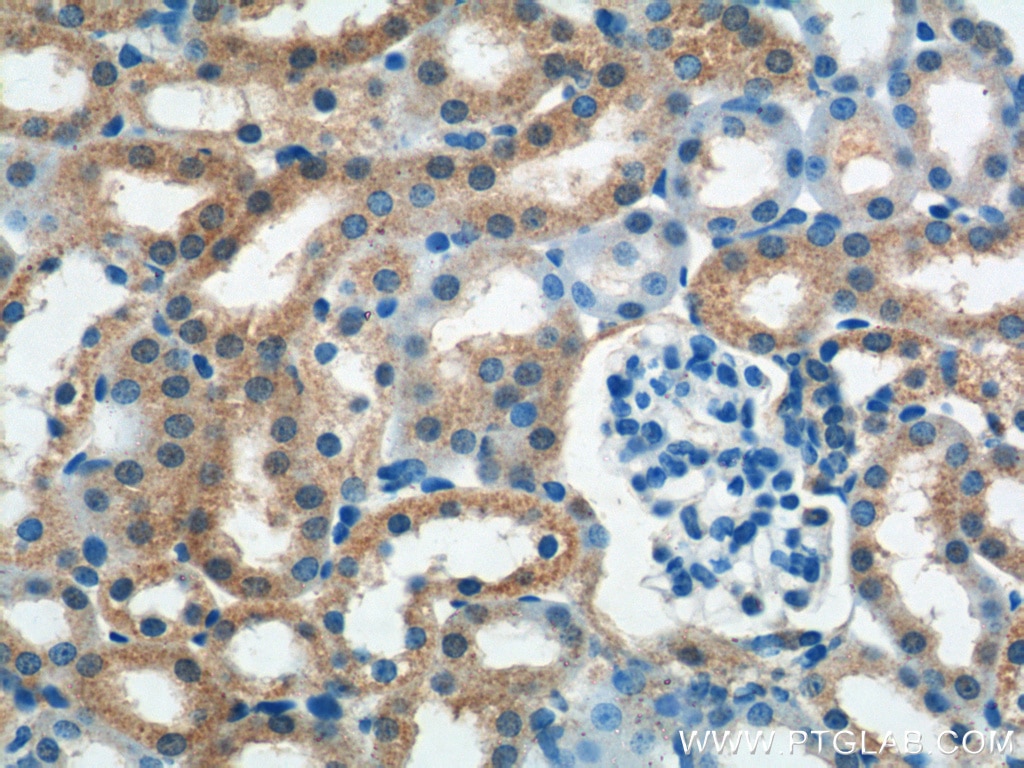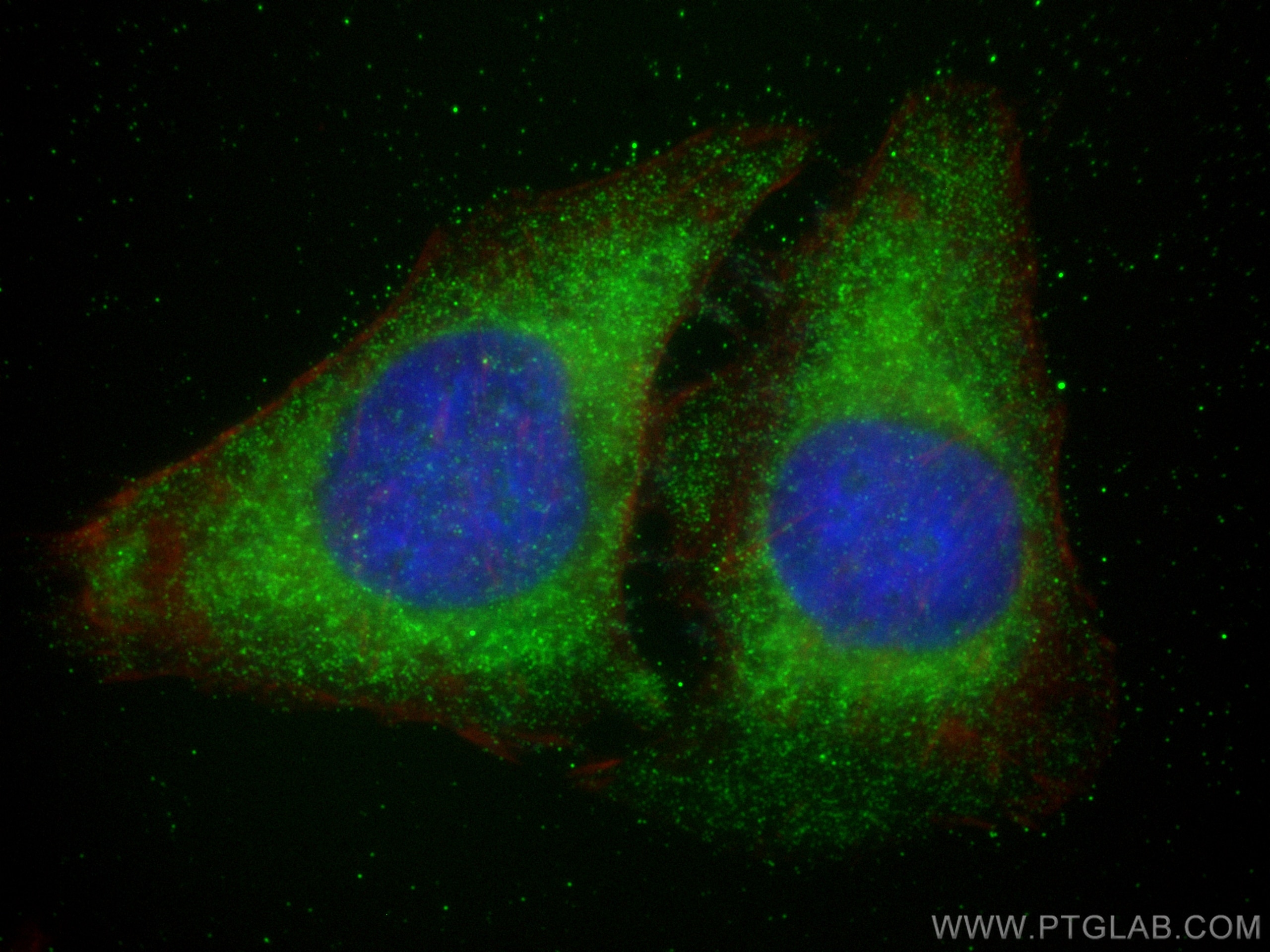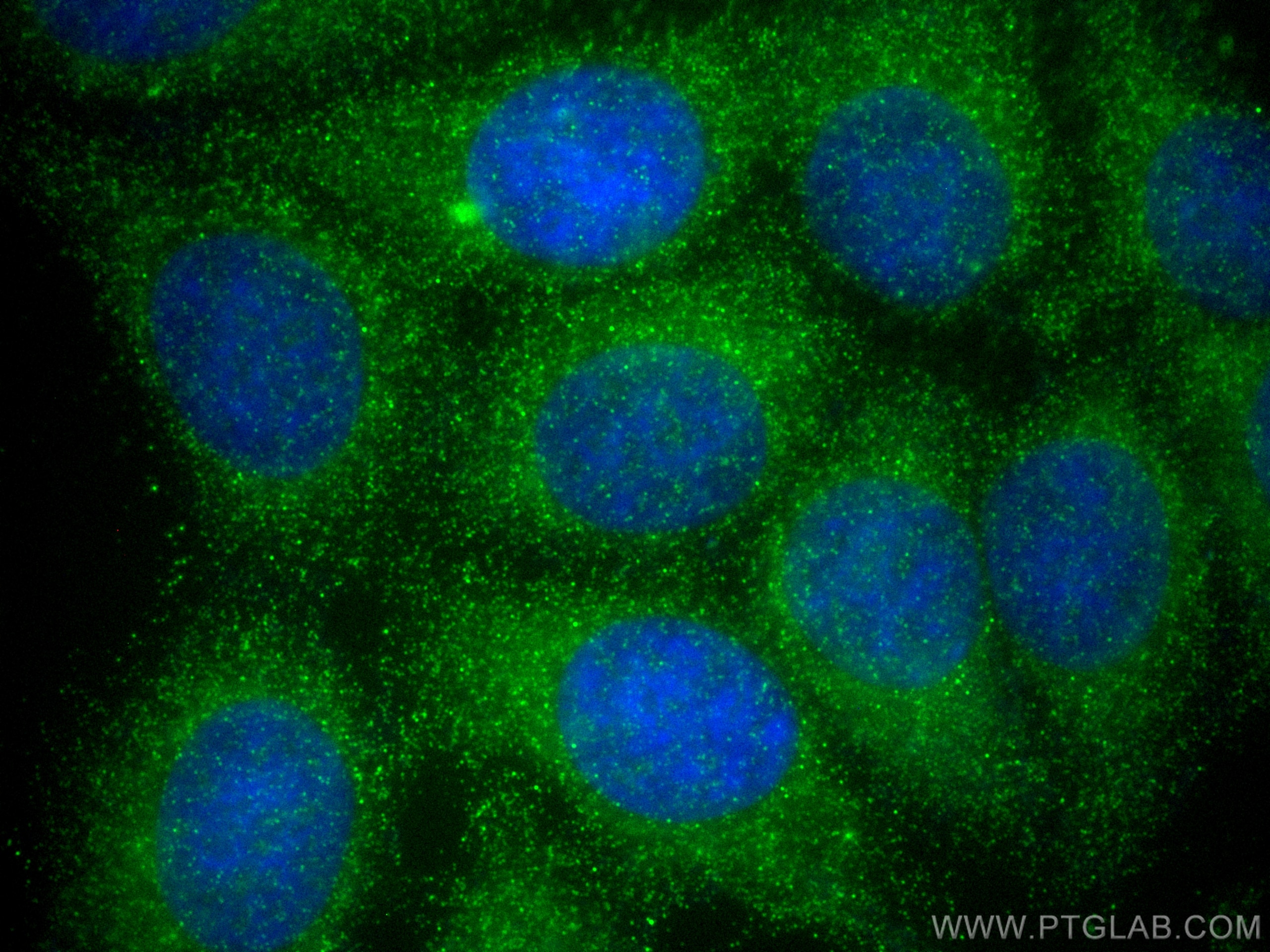Tested Applications
| Positive IHC detected in | human kidney tissue, human hepatocirrhosis tissue, mouse kidney tissue Note: suggested antigen retrieval with TE buffer pH 9.0; (*) Alternatively, antigen retrieval may be performed with citrate buffer pH 6.0 |
| Positive IF/ICC detected in | MCF-7 cells, HeLa cells |
Recommended dilution
| Application | Dilution |
|---|---|
| Immunohistochemistry (IHC) | IHC : 1:50-1:500 |
| Immunofluorescence (IF)/ICC | IF/ICC : 1:50-1:500 |
| It is recommended that this reagent should be titrated in each testing system to obtain optimal results. | |
| Sample-dependent, Check data in validation data gallery. | |
Published Applications
| WB | See 6 publications below |
| IHC | See 5 publications below |
| IF | See 3 publications below |
Product Information
14371-1-AP targets WNT4 in WB, IHC, IF/ICC, ELISA applications and shows reactivity with human, mouse samples.
| Tested Reactivity | human, mouse |
| Cited Reactivity | human, mouse, rat |
| Host / Isotype | Rabbit / IgG |
| Class | Polyclonal |
| Type | Antibody |
| Immunogen |
CatNo: Ag5741 Product name: Recombinant human WNT4 protein Source: e coli.-derived, PGEX-4T Tag: GST Domain: 1-351 aa of BC057781 Sequence: MSPRSCLRSLRLLVFAVFSAAASNWLYLAKLSSVGSISEEETCEKLKGLIQRQVQMCKRNLEVMDSVRRGAQLAIEECQYQFRNRRWNCSTLDSLPVFGKVVTQGTREAAFVYAISSAGVAFAVTRACSSGELEKCGCDRTVHGVSPQGFQWSGCSDNIAYGVAFSQSFVDVRERSKGASSSRALMNLHNNEAGRKAILTHMRVECKCHGVSGSCEVKTCWRAVPPFRQVGHALKEKFDGATEVEPRRVGSSRALVPRNAQFKPHTDEDLVYLEPSPDFCEQDMRSGVLGTRGRTCNKTSKAIDGCELLCCGRGFHTAQVELAERCSCKFHWCCFVKCRQCQRLVELHTCR Predict reactive species |
| Full Name | wingless-type MMTV integration site family, member 4 |
| Calculated Molecular Weight | 39 kDa |
| Observed Molecular Weight | 39-45 kDa |
| GenBank Accession Number | BC057781 |
| Gene Symbol | WNT4 |
| Gene ID (NCBI) | 54361 |
| RRID | AB_2215428 |
| Conjugate | Unconjugated |
| Form | Liquid |
| Purification Method | Antigen affinity purification |
| UNIPROT ID | P56705 |
| Storage Buffer | PBS with 0.02% sodium azide and 50% glycerol, pH 7.3. |
| Storage Conditions | Store at -20°C. Stable for one year after shipment. Aliquoting is unnecessary for -20oC storage. 20ul sizes contain 0.1% BSA. |
Background Information
WNT4 belongs to the Wnt family. WNT4 is critical for embryonic organogenesis, but later plays a unique role among Wnt proteins in the development and maintenance of müllerian and reproductive tissues (PMID: 33963381). The mesenchymal stem cells can improve cardiac function after cardiac injury by regulating endothelial cells via the Wnt4/β-catenin signaling pathway (PMID: 20551912). WNT4 may be modified by glycosylation, leading to an increase in molecular weight.
Protocols
| Product Specific Protocols | |
|---|---|
| IF protocol for WNT4 antibody 14371-1-AP | Download protocol |
| IHC protocol for WNT4 antibody 14371-1-AP | Download protocol |
| Standard Protocols | |
|---|---|
| Click here to view our Standard Protocols |
Publications
| Species | Application | Title |
|---|---|---|
Ecotoxicol Environ Saf Prenatal Perfluorooctanoic Acid (PFOA) exposure causes reproductive toxicity by disrupting the formation of transzonal projections (TZPs) and down-regulating Wnt4/β-catenin signaling pathway in progeny | ||
Int J Clin Exp Pathol Wnt4/β-catenin signaling pathway modulates balloon-injured carotid artery restenosis via disheveled-1. | ||
Neurochem Res Wnt Signaling is Altered by Spinal Cord Neuronal Dysfunction in Amyotrophic Lateral Sclerosis Transgenic Mice. | ||
BMC Complement Med Ther Extract of Corallodiscus flabellata attenuates renal fibrosis in SAMP8 mice via the Wnt/β-catenin/RAS signaling pathway. | ||
Cell Death Dis The transcription factor Sox7 modulates endocardiac cushion formation contributed to atrioventricular septal defect through Wnt4/Bmp2 signaling. |

